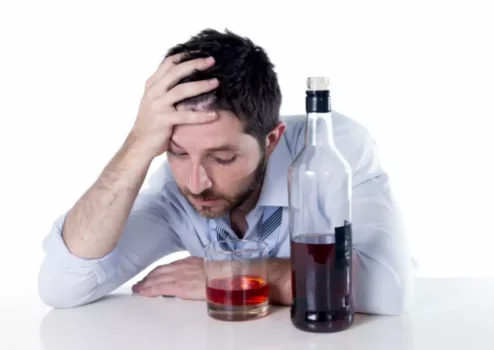
Building a strong support network and engaging in activities that Substance abuse promote a healthy and substance-free lifestyle are vital for effectively managing and overcoming these triggers. Understanding what one’s personal relapse triggers is a crucial step in maintaining sobriety. With this knowledge, individuals can develop coping strategies to handle these triggers and reduce the risk of relapse. Interpersonal conflicts are one of the most significant factors leading to relapse in addiction recovery. Issues like arguments, financial disagreements, or misunderstandings with family and friends can escalate stress and negative emotions. These conflicts often create a sense of isolation, exacerbating feelings of loneliness and anger, further increasing the risk of returning to substance use.
What Is an Addiction Trigger?
Journaling about personal experiences and emotional responses can be a useful technique in identifying high-risk situations. Keep a trigger diary to note times when cravings arise or when feelings shift https://ecosoberhouse.com/ toward substance use. Regular reflections help in understanding your emotional state and identifying patterns that lead to risky behavior. By identifying and understanding these risks, individuals can develop effective relapse prevention strategies tailored to their unique experiences. Those in recovery need to learn that feeling uncomfortable is not a state that needs remediation, it’s a normal part of a normal life. Coping methods learned in therapy and through recovery work help people remain grounded while processing these feelings in a more positive way.
- At Midwest Recovery Centers, we are here for you and proudly partner with Cigna Insurance to offer the comprehensive care that you deserve, tailored to…
- It is easy to fall into the trap of thinking that life without substances is a life without fun but that’s not the case – UNLESS you perceive it to be the case.
- Having self-confidence is necessary, but becoming over-confident to the point of complacency crosses a line from healthy confidence to over-confidence and relapse risk.
- These situations can disrupt emotional well-being and coping mechanisms, making individuals more susceptible to resorting to substance use.
- Self-awareness is the power to recognize and comprehend one’s own emotions, thoughts, and behaviors.
What is the importance of a relapse prevention plan?
Proper nutrition in recovery is essential, and can make a huge difference in decreasing cravings and improving your overall sense of wellbeing. Everyone has had long, difficult days that end with the thought, “Why do I even bother? ” This relapse triggers list can be a difficult question to ask yourself if you have a substance abuse disorder.
Negative or Stressful Life Events
Long-term drug use creates an association in the brain between daily routines and drug experiences. Individuals may suffer from uncontrollable drug or alcohol cravings when exposed to certain cues. The cravings act as a reflex to external or internal triggers, and this response can even affect individuals who have abstained from drugs or alcohol for a long time. Avoiding triggers is only one part of the puzzle when it comes to addiction and recovery. As we’ve mentioned a few times, it’s important to learn healthy coping mechanisms to help you handle yourself if you happen to encounter one of your triggers while you’re out in the world. Avoiding all of your triggers isn’t always an option, but running into one when you’re going about your daily business doesn’t necessarily have to trigger a relapse.
- Recovery is a journey with no end, yet some people begin to feel that they are cured and don’t have to worry about triggers anymore.
- Relapse triggers are events, situations, or emotions that can lead to a strong desire to seek out drugs and alcohol again, potentially resulting in alcohol abuse.
- Overconfidence in one’s recovery can be a subtle yet potent trigger for relapse.
- By recognizing and comprehending these scenarios, individuals can effectively develop strategies to manage or avoid them.
This means you need to carve a little time out of your day to ask for help. If recovery is your priority, then making sure you avoid becoming too hungry, angry, lonely, or tired will also need to become priorities. This may mean planning meals, sticking to a strict sleep schedule, and attending support groups. The acronym HALT is used to describe high-risk situations for those in recovery.


Asking certain questions about external triggers can help prevent relapse. When people in recovery succumb to triggers, their brains create reasons to use substances despite knowing that they must remain abstinent. This ongoing fight increases their vulnerability to cravings, which may result in a potential relapse. Recovery is a journey with no end, yet some people begin to feel that they are cured and don’t have to worry about triggers anymore.

Common Internal Relapse Triggers

Coping in a healthy manner requires that you have a plan in place to address your needs when you cannot directly respond to the particular trigger. You may fall into the false idea that is celebrating with a drink or drug ‘just this once’ will be ok. Increased income can also trigger thoughts of being able to afford your drug of choice.